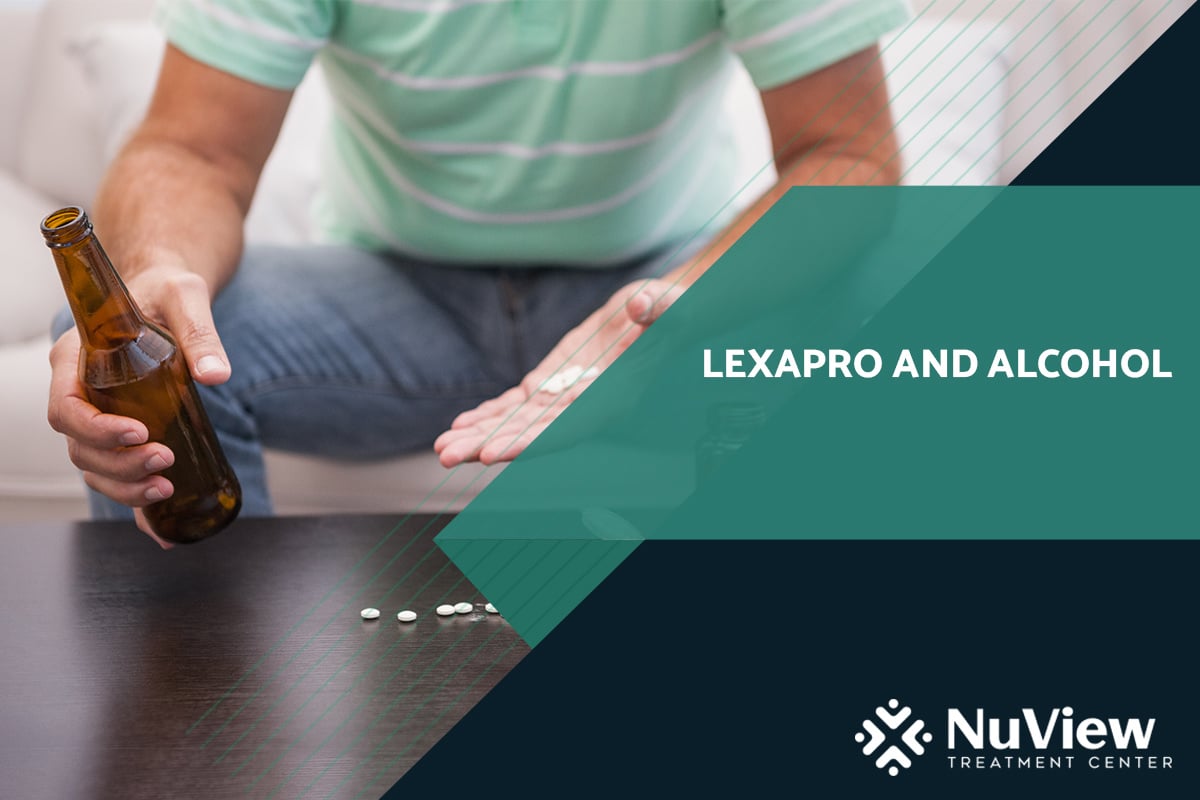Alcohol is ubiquitous - so common that its risks are often underestimated. It is one of the most widely used (and abused) substances in the world. In fact, the World Health Organization (WHO) reports that nearly 400 million people aged 15 years or older struggle with alcohol use worldwide.
At the same time, prescription medications like hydrocodone, which is a powerful opioid found in pain relievers like Vicodin, are commonly used to manage pain. When taken as prescribed, hydrocodone can be very effective. But mixing hydrocodone and alcohol? That is like playing with fire, as this opioid often interacts dangerously with alcohol and even leads to life-threatening conditions.
In this blog, we will explore the dangers of mixing hydrocodone with alcohol. If you struggle with this, you will also learn how you can find recovery from polysubstance use.
What Are the Effects of Hydrocodone?
Hydrocodone is a semi-synthetic opioid and prescription painkiller found in medications like Norco and Vicodin. Hydrocodone binds to brain receptors linked with pain control and regulates pain. Therefore, it is frequently used to treat moderate to severe pain. At the same time, it also binds to brain receptors linked to emotional regulation and pleasure, producing euphoria or a rush of pleasurable sensations/feelings. So, it gives rise to a feeling of a high/euphoria or a rush of pleasurable sensations and feelings. This creates a risk of misuse.
When you consume hydrocodone as per your doctor’s prescription, it is safe and effective. However, when misused (or abused), you can experience the following effects:
- Vomiting
- Constipation
- Sleep
- Dizziness
- Low blood pressure
- Respiratory depression
- Seizures.
Get Started With Nuview Treatment Center
Our dedicated professional staff is here to guide you or your loved one on the journey to lasting recovery, offering support every step of the way.
What Are the Effects of Alcohol?
Alcohol is a central nervous system (CNS) depressant, meaning it slows brain activity and produces relaxing effects. Alcohol generally tends to be the “life” of every social gathering, so it is very difficult to escape its lure. While social or controlled drinking is relatively safe, heavy and uncontrolled drinking leads to alcohol dependence and alcohol use disorder. Given that alcohol has this kind of high potential for misuse, it is one of the most abused substances worldwide. The common effects of abusing alcohol are as follows:
- Vomiting
- Slurred speech
- Low mood
- Difficulty in focusing
- Impaired movement
- Drowsiness
- Dizziness
- Blackouts and memory gaps
- Liver damage
- Alcohol withdrawal.
Can You Drink On Hydrocodone?
If you have been prescribed hydrocodone or use hydrocodone for other reasons, you may be wondering whether you can drink on hydrocodone or not. Is it safe? Well, there is a very straightforward answer to that. It is NOT safe under any circumstances. Hydrocodone is a semi-synthetic opioid. Once ingested, it binds to the opioid receptors in the central nervous system (CNS) and the digestive system and acts as a depressant. Meanwhile, alcohol is a potent CNS depressant. What this means is that they can slow down the brain activity and produce feelings of pleasure, relaxation, and peace.
But on the flip side, they can magnify each other’s effects, which can lead to difficulty in breathing, loss of consciousness, and even something as life-threatening as heart failure. In extreme cases, this dangerous cocktail can even shut down the body's vital organs and lead to coma or death.
What Happens When You Mix Hydrocodone and Alcohol?
The U.S. is in the midst of an opioid epidemic, with widespread implications globally. As per the Centers for Disease Control and Prevention (CDC) report, an estimated 108,000 died of overdose, and in nearly 82,000 of the cases, opioids were involved. This includes hydrocodone. Now, if you take hydrocodone as per your doctor's prescription, it can effectively relieve pain. However, if you mix hydrocodone with alcohol, they have very similar effects and can amplify the effects of each, leading to:
- Excessive sleepiness
- Increased tiredness
- Confusion
- Behavioral changes, like increased hostility
- Memory loss
- Muscle weakness
- Impaired motor coordination
- Irregular or slowed breathing rate
- Irregular or slowed heart rate
- Trembling
- Seizures
- Organ damage
- Heart failure
- Death.
Where hydrocodone and alcohol use are suspected, then the above-mentioned symptoms must be treated as an emergency. Contact nearby healthcare providers or emergency services (like 9-1-1 in the U.S.) immediately, as it can be a life-saving move.
Get Started With Nuview Treatment Center
What Are the Dangers of Mixing Hydrocodone and Alcohol?
Drinking while on hydrocodone can have severe, long-lasting effects on the mind and body. Some of the potentially dangerous consequences are:
- Dependence on hydrocodone and alcohol.
- Increased risk of opioid use disorder and alcohol use disorder.
- Liver damage
- Heart disease
- Increased risk of overdose.
Overdose and Its Symptoms
In many cases, overdose cases involve alcohol and an opioid, including hydrocodone. Some of the signs of hydrocodone and alcohol overdose are:
- Sweaty skin
- Bluish fingernails
- Decreased pupil size
- Slowed or stopped breathing
- Slowed heart rate
- Unresponsiveness
- Coma.
If any of these signs are noticed, call the nearby emergency room or emergency providers (like 9-1-1 in the U.S.) immediately. It can be a life-saving move.
Lasting Recovery from Hydrocodone and Alcohol Abuse
Mixing hydrocodone and alcohol can lead to severe, even life-threatening conditions, yet with the right level of care, they can be effectively treated and managed. Depending on the severity, intensive, residential treatment or outpatient treatment can be provided.
Hydrocodone and alcohol abuse are treated with medically supervised detoxification (detox) and medication-assisted treatment (MAT), which uses a combination of psychotherapy and medication. Psychotherapeutic interventions involve motivational interviewing, cognitive behavioral therapy, contingency management (reinforcing abstinence-related behaviors), and 12-step recovery programs. Joining support groups like Alcoholics Anonymous and Narcotics Anonymous can be beneficial for recovery, maintenance, and relapse prevention. Meanwhile, medication management involves prescribing, monitoring, and adjusting medications to reduce cravings, other symptoms, and enhance the quality of life.
What Makes NuView’s Approach to Hydrocodone and Alcohol Abuse Unique?
The NuView Treatment Center is a premier outpatient treatment center located in Los Angeles. We treat hydrocodone and alcohol abuse in outpatient settings with partial hospitalization programs (PHPs) and intensive outpatient programs (IOPs), which are personalized to your unique needs and goals, as we believe in making behavioral healthcare relevant as it is effective. We believe in making the right care easy for everyone, so we offer evening programs so that you do not have to put your life on hold to focus on your recovery.
Reach out to NuView now to begin your healing journey today!
If you are struggling with hydrocodone and alcohol use, contact us at (323) 307-7997 or email us at info@nuviewtreatment.com today! Let us take this journey toward your sobriety together.
- What Are the Effects of Hydrocodone?
- What Are the Effects of Alcohol?
- Can You Drink On Hydrocodone?
- What Happens When You Mix Hydrocodone and Alcohol?
- What Are the Dangers of Mixing Hydrocodone and Alcohol?
- Lasting Recovery from Hydrocodone and Alcohol Abuse
- What Makes NuView’s Approach to Hydrocodone and Alcohol Abuse Unique?
- What Are the Effects of Hydrocodone?
- What Are the Effects of Alcohol?
- Can You Drink On Hydrocodone?
- What Happens When You Mix Hydrocodone and Alcohol?
- What Are the Dangers of Mixing Hydrocodone and Alcohol?
- Lasting Recovery from Hydrocodone and Alcohol Abuse
- What Makes NuView’s Approach to Hydrocodone and Alcohol Abuse Unique?
Get Help Today!
Everyone is Welcome Here and We All Have Your Back
Your healing journey deserves a personalized approach. At NuView, we integrate expertise in behavioral therapy, mental health, and substance use treatment to create a customized recovery plan tailored to your unique needs.
Connect with our Admissions Specialists today.







Written By
Dr. Ryan Peterson